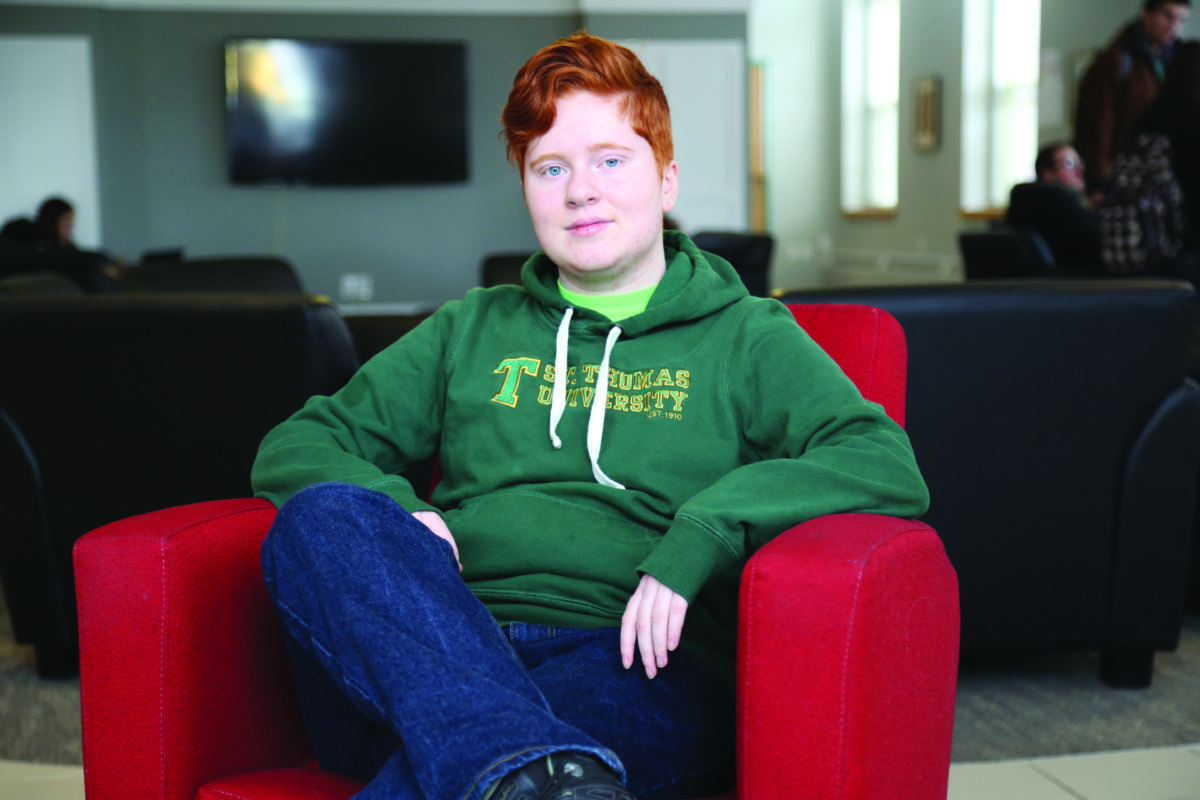My first date was on Nov. 16, 2015, at 6:30pm. We went to dinner at Naru downtown. I threw up in the bathroom because I was nervous. Came back to the table and made a casual joke about texting my friend. I checked on my reflection in the window to make sure there wasn’t vomit on my lips.
This wasn’t my first date of second year, or my first date of university. This was my first date ever. Not one awkward middle school movie night, not one high school sweetheart. I went to prom alone, hitchhiking to the door.
In grade 8 I came out as asexual and aromantic. Asexual means that you have no interest in a sexual relationship. Aromantic means you have no interest in a romantic one. Pretty straightforward. Yet thanks to the study of asexual reproduction in biology most of my class thought I multiplied when I masturbated. Just to clarify; no, this does not happen.
I identified this way not because it reflected my feelings towards having a relationship, but because it allowed me to distance myself from the very concept of relationships. It allowed me not to think about it.
As pretty well everyone on campus knows, I am transgender. And not the Laverne Cox kind of trans either. I don’t identify as a girl or a boy but something that’s kind of both and kind of neither. When was the last time you heard a sappy love story where girl meets kind of both, kind of neither trans person and they fall in love and live happily ever after? Never? Me neither.
This is where that fancy social justice concept of privilege comes in. Am I turning into your sociology professor? For this paragraph, yes. Privilege is the idea that people who are in certain social groups have socially constructed advantages in many aspects of life when compared to another social group.
This includes things like not getting murdered or raped for dressing a certain way. Not being evicted for being yourself. Being able to find a job without fearing discrimination. Or being free to fall in love.
There’s nothing wrong with having your first relationship in your second year of university. There’s nothing wrong with having your first relationship whenever you want to have it, or never having a relationship at all. But for me it wasn’t my choice.
I had been an active member of the trans community since 13. I read other people’s stories. I knew what my story would entail: self-discovery, self-acceptance, coming out, social acceptance, social transition, then my story would end with physical transition if I was lucky and murder or suicide if I wasn’t.
That’s what laid ahead for me. But love wasn’t part of the story.
Among trans people I was lucky that I still had the love of my family and friends. Who was I to expect that I could have romantic love too?
So I came out as asexual and aromantic to distance myself from those emotions. It was easier on me to pretend like I didn’t want love or sex than it was to try to figure out what being in a relationship as a trans person would look like.
It wasn’t until I came to university and saw other trans people in relationships that I started to wonder if it was possible for me to fall in love. Or, more importantly, to be fallen in love with.
When we hear the stories of people like us we are empowered to follow in their footsteps. We breathe a sigh relief and say “Yes, this is normal. I can do this.” But when the people like us are shut off from society, our lives are stifled. We think there’s something wrong. We go searching for a story like ours and when we don’t find one we look for something wrong inside ourselves. Something to fix that will make us fit in with the stories we do see.
If my dating woes are the greatest of my concerns, then I am lucky among trans people. Many have to deal with rejection and violence from their families and friends. I am thankful to live in such a safe community where I have the option of being so concerned about my love life.
But I wonder what would be different if I were normal? If trans people’s stories were regarded as the stories of everyday people? If we could see our narratives reflected in main stream media?
I guess that’s why I thought it was appropriate to write about my love life for a school paper. After all, if
trans people don’t share their own stories, we won’t have any stories to be heard.

